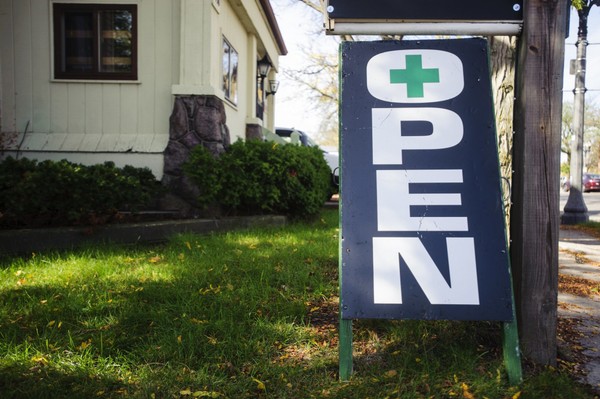The legislature is considering a bill that would limit medical marijuana growing licenses to 1,500 plants per location, something that’s the exact opposite of what the Department of Licensing and Regulatory Affairs has recommended as it crafts regulations for medical marijuana facilities.
The legislature last year passed a bill regulating medical marijuana facilities, including growing operations. Three types of growing licenses are allowed:
The Class A license allows a grow of up to 500 medical marijuana plants.
- The Class B license allows a grow of up to 1,000 medical marijuana plants.
- The Class C license allows a grow of up to 1,500 medical marijuana plants.
But LARA, which was left in charge of many of the details in implementing medical marijuana facilities regulations, signaled last month that it would allow even bigger grows by letting companies “stack” the largest licenses and grow many times 1,500 plants in one location.
“It is the intent of the Bureau of Medical Marihuana Regulation to allow a potential licensee to apply for – and be granted – multiple (“stacked”) class C grow licenses in a single location,” wrote the department in a Sept. 28 press release.
That, said Rep. Jim Runestad, R-White Lake, is “beyond what I think many legislators intended.”
He is the sponsor of House Bill 5189, which would limit medical marijuana growers from holding more than one license at a single facility. He also chairs the House Judiciary Committee, which took testimony on the bill Tuesday morning.
“Having super-grows could potentially monopolize the market and may not be the direction that we would want to go immediately. Only time will tell who the good actors are and if it is reasonable to allow unlimited stacking of licenses per location,” Runestad told the committee.
Rep. Tim Greimel, D-Auburn Hills, questioned whether this bill would really quell monopolistic tendencies. It would still allow the same person to get multiple Class C licenses at different locations, he pointed out.
“That doesn’t reduce the likelihood of monopolistic control over licenses any more than having them in one location, does it?” Greimel asked.
Thetford Township Trustee Eric Gunnels said he supported the bill.
“I do think that we should be cautious, that we don’t allow, like you said, monopolies, monopolistic ventures to consolidate the market into the hands of a few,” Gunnels said.
But Bangor Township Supervisor Glenn Rowley said his area had a shrinking revenue stream and large industrial properties medical marijuana grows would bring to life. They already have a few large companies requesting local permits for multiple Class C grows. He opposes the bill.
“We want everyone to succeed,” Rowley said, adding he hoped they made a pile of money so big you need a Sherpa to get to the top of it.
Runestad said there was more testimony he couldn’t get to before the committee was scheduled to end. At this point, though, he thinks there are the votes to get it out of committee and is planning to take it up again at the committee’s next meeting.
credit:420intel.com




